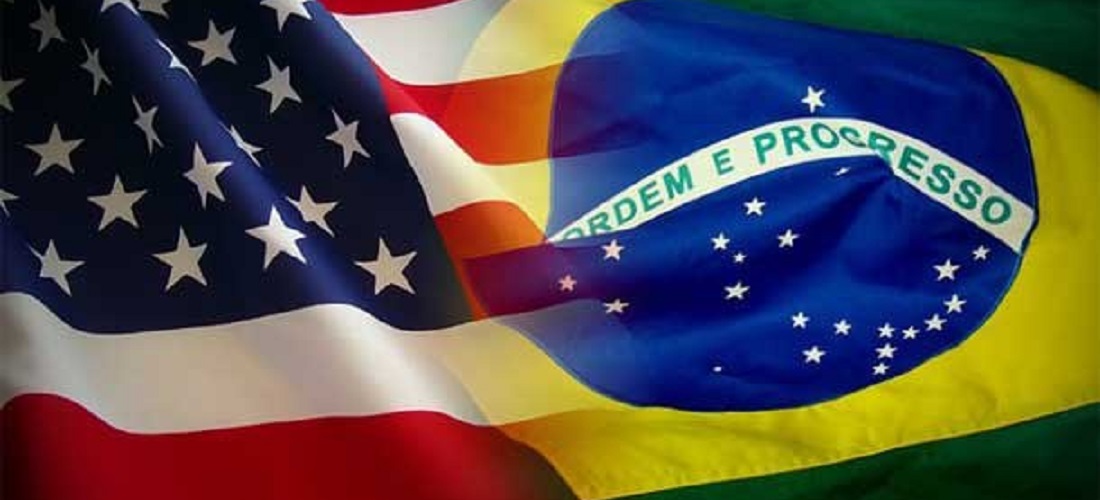Trade Dispute Deepens Following Trump’s Allegations on Bolsonaro Trial
Brazilian President Luiz Inácio Lula da Silva has issued a firm response to U.S. President Donald Trump’s threat to impose a 50% tariff on Brazilian imports beginning August 1, declaring that Brazil will reciprocate any trade penalties with matching levies on American goods. The announcement comes as part of a broader exchange that has linked international trade policy with political controversies, sparking concern among global analysts about the erosion of diplomatic norms in trade relations.
Trump’s warning was delivered in the form of a direct letter to President Lula, citing Brazil’s legal actions against former President Jair Bolsonaro as a central reason for the proposed import hike. Bolsonaro, who is currently facing trial for his alleged role in orchestrating a failed attempt to overturn the 2022 presidential election, has been the subject of intense legal scrutiny in Brazil. In his letter, Trump described Bolsonaro as “a highly respected leader throughout the world” and referred to the judicial proceedings as “a witch hunt.”
Lula Rejects U.S. Interference, Promises Retaliation
In response, Lula posted a strong statement on X, previously known as Twitter, where he affirmed Brazil’s sovereign rights and rejected what he described as foreign tutelage. He emphasized the independence of Brazilian institutions and warned that any attempt to unilaterally punish Brazil economically would be met with an equal and opposite response.
“Brazil is a sovereign country with its own institutions and democratic processes,” Lula stated. “We will not accept coercive measures or economic threats, and we will apply equivalent tariffs on U.S. imports should these threats materialize.”
Trade Figures in Dispute
Trump’s assertion that the United States suffers from a trade deficit with Brazil was also disputed by the Brazilian president. According to recent U.S. trade statistics, the United States maintained a trade surplus of approximately $7.4 billion with Brazil in 2024. Lula cited this data to rebut Trump’s claim and suggested that the proposed tariffs are based on political, rather than economic, grounds.
The U.S. is Brazil’s second-largest trade partner, following China. American exports to Brazil include industrial machinery, mineral fuels, and aerospace equipment. Conversely, the U.S. imports commodities such as crude oil, iron, and coffee from Brazil. A 50% import tax, up from a current average rate of about 10%, would significantly disrupt these trade flows and could lead to inflationary pressure and supply chain disruptions in both countries.
Broader Diplomatic Implications
Trump’s tariff warning to Brazil was part of a broader campaign that included similar threats to more than 20 other countries, among them Japan, South Korea, and Sri Lanka. However, the letter addressed to Lula was unique in its overt political overtones, specifically criticizing Brazil’s judicial handling of Bolsonaro and what Trump described as “secret censorship orders” directed at American social media platforms.
This reference appears to point to ongoing disputes involving Brazilian court rulings to suspend certain accounts on U.S.-based platforms, including Truth Social, which is operated by Trump Media. The Brazilian government has defended these decisions, citing violations such as the spread of hate speech, child exploitation content, and disinformation targeting democratic institutions.
Lula responded to those criticisms by reaffirming Brazil’s commitment to democratic values and the rule of law. “Brazilian society has made a clear choice to reject hate speech, racism, child pornography, fraud, and attacks on democratic freedoms,” he stated.
Political Analysis and Regional Impact
Analysts suggest that Trump’s letter may have unintended consequences. According to political scientists observing the situation, the politicized tone of Trump’s message may actually strengthen Lula’s standing domestically. Comparisons have been drawn with political leaders in Canada, Australia, and Mexico, who saw boosts in public support after publicly confronting Trump on policy or sovereignty issues.
The political risk consultancy Dharma Politics noted that Lula’s ability to effectively navigate this dispute may hinge on the unity and clarity of Brazil’s governmental response. “If the Lula administration presents a strong, organized front, this could serve to reinforce his image as a defender of national dignity and economic fairness,” stated Creomar de Souza, a senior advisor with the firm.
Uncertain Path Forward
As of now, there is no formal confirmation that the tariffs will be enacted, but the rhetoric between the two nations has escalated notably. The episode adds another layer of complexity to the already tense relationship between the U.S. and Latin America under the current American administration. With upcoming elections in both countries on the horizon, the issue may serve as a litmus test for broader foreign policy trends and economic strategy in a shifting global landscape.
While formal negotiations have not been announced, trade observers are closely monitoring whether this standoff evolves into a full-scale trade dispute. If enacted, the 50% tariff could be among the most aggressive protectionist measures seen between the two nations in decades, with consequences for global supply chains, multilateral trade agreements, and diplomatic norms.



